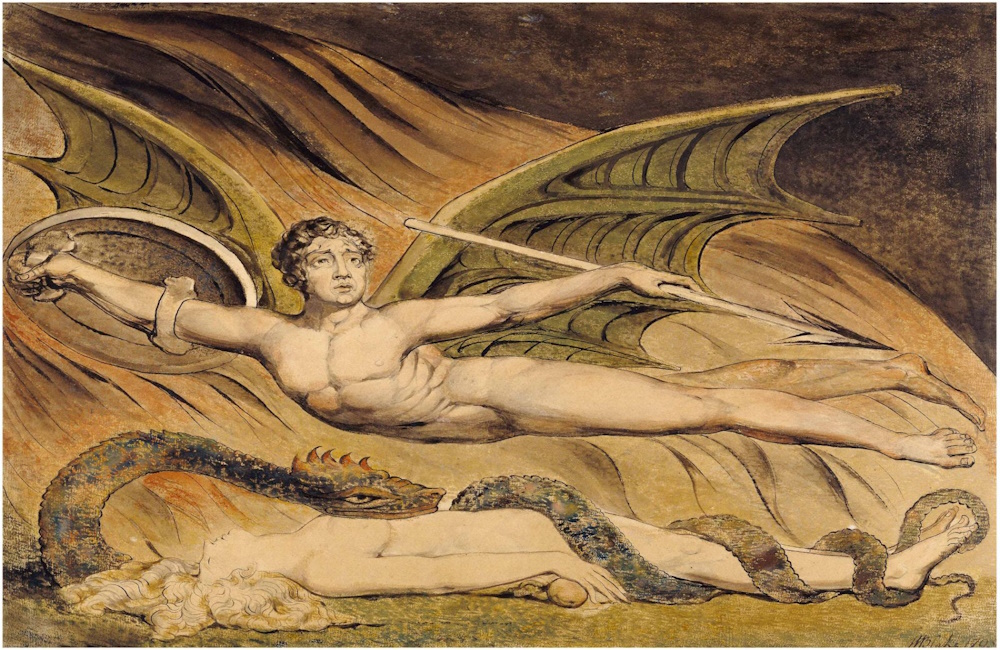The story of Satan’s refusal to bow to Adam is a significant narrative in Islamic tradition, contrasting sharply with Christian teachings. This story explores themes of obedience, rebellion, and divine command, revealing different theological perspectives between Islam and Christianity. While the Quran repeatedly mentions Satan’s refusal to bow to Adam, the Bible lacks any parallel story, leading to questions about the origins and meanings of these narratives.
The Islamic Perspective: The Story in the Quran
In the Islamic tradition, the story of Satan (referred to as Iblis in the Quran) refusing to bow to Adam appears multiple times across different verses. After creating Adam, God commands all the angels to bow to him. Although the angels comply, Iblis, a jinn, refuses, citing his creation from fire as making him superior to Adam, who was made from clay. This act of defiance is highlighted in several verses:
–Surah Al-Baqarah (2:34): “And [mention] when We said to the angels, ‘Prostrate before Adam’; so they prostrated, except for Iblis. He refused and was arrogant and became of the disbelievers.”
–Surah Al-A’raf (7:11-12): “And We have certainly created you, [O Mankind], and given you [human] form. Then We said to the angels, ‘Prostrate to Adam’; so they prostrated, except for Iblis. He was not of those who prostrated. [Allah] said, ‘What prevented you from prostrating when I commanded you?’ [Satan] said, ‘I am better than him. You created me from fire and created him from clay.'”
–Surah Sad (38:71-76): “[So mention] when your Lord said to the angels, ‘Indeed, I am going to create a human being from clay. So when I have proportioned him and breathed into him of My [created] soul, then fall down to him in prostration.’ So the angels prostrated – all of them entirely. Except Iblis; he was arrogant and became among the disbelievers. [Allah] said, ‘O Iblis, what prevented you from prostrating to that which I created with My hands? Were you arrogant [then], or were you [already] among the haughty?’ He said, ‘I am better than him. You created me from fire and created him from clay.’ [Allah] said, ‘Then get out of Paradise, for indeed, you are expelled. And indeed, My curse is upon you until the Day of Recompense.’
–Surah Al-Kahf (18:50): “And [mention] when We said to the angels, ‘Prostrate to Adam,’ and they prostrated, except for Iblis. He was of the jinn and departed from the command of his Lord. Then will you take him and his descendants as allies other than Me while they are enemies to you? Wretched it is for the wrongdoers as an exchange.”
–Surah Taha (20:116): “And [mention] when We said to the angels, ‘Prostrate to Adam,’ and they prostrated, except for Iblis. He refused.”
These verses clearly state that the angels were commanded to bow down to Adam, which is often interpreted as an act of worship or submission in the context of Islamic theology. This raises important questions, as Islam consistently teaches that only God is worthy of worship. For instance, Surah Al-Fatiha (1:5) states, “It is You we worship, and You we ask for help,” and Surah Al-An’am (6:102) emphasizes, “There is no deity except Him, so worship Him alone.”
Given these explicit commandments about worship, the narrative about bowing to Adam seems contradictory if taken as an act of worship. Islamic scholars often argue that the bowing was not an act of worship but a gesture of respect or acknowledgement of Adam’s unique status as a creation of God. They suggest that the bowing was a form of honor and recognition of God’s creative power rather than worship. However, this interpretation does not fully align with the Quranic verses where the act of bowing is repeatedly mentioned, leading to an apparent conflict within the text itself.
The Christian Perspective: Absence in the Bible
In Christianity, there is no equivalent story of Satan being commanded to bow to Adam. The Genesis account of creation focuses on the creation of the world, the formation of Adam and Eve, and their fall from grace after eating from the Tree of Knowledge of Good and Evil. The Christian narrative portrays Satan primarily as a tempter, associated with the serpent in the Garden of Eden, rather than as a direct participant in a test of obedience involving Adam.
The fall of Satan in Christian theology is traditionally linked to his rebellion against God, framed as a cosmic struggle against divine authority rather than a specific command to honor humanity. Passages in Isaiah (14:12-15) and Ezekiel (28:12-17) are often interpreted by Christian tradition to refer to the fall of Lucifer (Satan) due to pride. However, these passages do not mention any command to bow to Adam or a celestial test of loyalty involving angels.
Conclusion
The story of Iblis’s refusal to bow to Adam in the Quran poses theological challenges and raises questions about its origins. Given the Quran’s emphasis that worship is due only to God, as in Surah Al-Baqarah (2:21), “O mankind, worship your Lord, who created you and those before you, that you may become righteous,” the command for the angels to bow to Adam seems contradictory to the principle that worship is for God alone. The angels, who are traditionally seen as superior beings tasked solely with worshipping and obeying God, are instead ordered to bow to a human, raising questions about the nature of this act.
This Quranic narrative may have been influenced by early Christian heresies, particularly those that presented alternative cosmologies and divine interactions. For instance, Gnostic texts, which were deemed heretical by early Christians, often contained elaborate and unconventional accounts of divine beings and their interactions with humanity. These heretical writings sometimes included elements like divine commands and interactions that diverged from mainstream Christian beliefs. The similarity between the Quranic story of Iblis and these Gnostic heresies suggests that the narrative about Satan refusing to bow to Adam might reflect influences from these non-orthodox sources, rather than purely original Islamic revelations.
